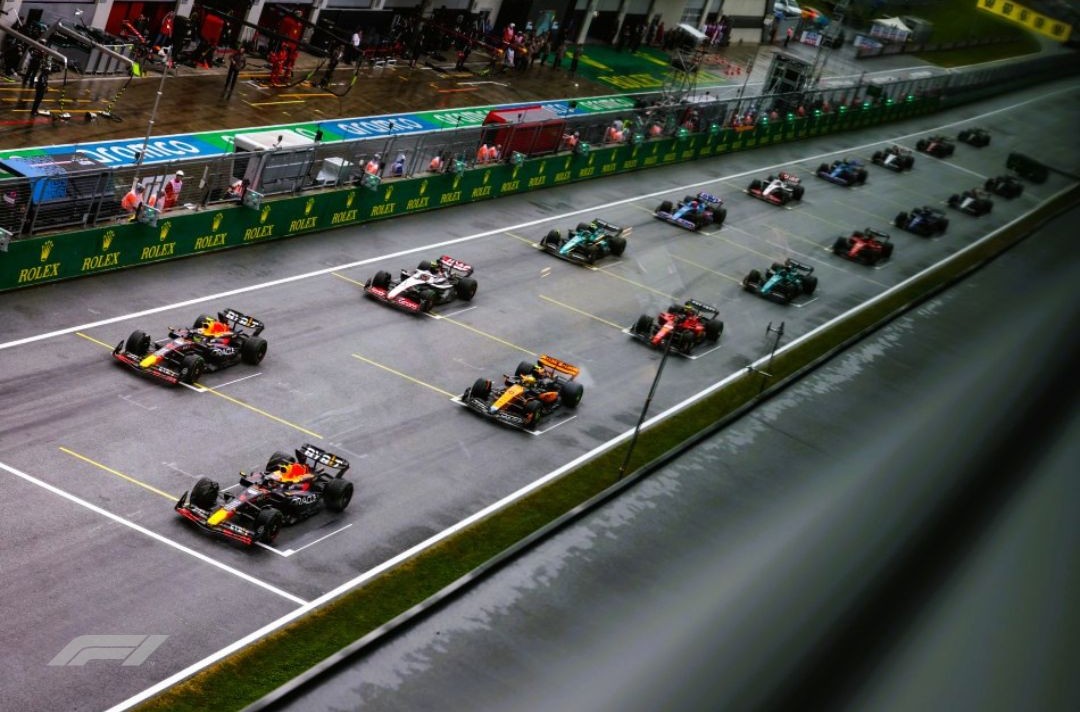Formula one, often abbreviated as F1, is the pinnacle of motorsport, combining the technology, elite driver skill, and global watch. With roots dating back to the late 19th century, F1 has always been a high speed, high-stakes racing series that has captivated many viewers over its time. Driving around the most iconic circuits, F1 is the place to be, and the race to watch as they push the limits of the car beyond what is thought to be possible.
Formula One races take place every Sunday, with qualifying Saturday, and free practice Wednesday, Thursday, and Friday. Each day leading up to qualifying is big. These free practice sessions allow the drivers to give feedback to their engineers on how the car can perform better and parts of the car they need to change for them to race faster. The sessions are very important, since each session helps improve the car and get it ready for the qualifying session on Saturday.
When people think of sports, they often imagine athletes sprinting down tracks, leaping for baskets, or colliding on football fields. The image of a helmeted driver gripping a steering wheel at 200 miles per hour rarely comes to mind. But Formula 1, the pinnacle of motorsport, is not just a high-octane spectacle of speed and engineering. It is a sport in every sense of the word, demanding peak physical conditioning, mental acuity, and strategic precision.
Critics often argue, “How hard can it be? They’re just racing.” But F1 drivers endure extreme physical stress during races. In corners, they face up to 5 Gs of force, meaning a driver’s body, and more crucially their neck, must resist five times the force of gravity multiple times per lap (site F1 – The Official Home of Formula 1® Racing). Over the course of a 90-minute race, this becomes a monumental physical task. To prepare, drivers will undergo many different intense fitness trainings, focusing neck strength, core strength, and cardio. It is demanded that they stay in fit, because each car is suited for the driver and made around the driver.
Drivers also lose up to 3 kilograms (6.6 pounds) of body weight through sweat during a hot race, a figure comparable to marathon runners. The cockpit, often over 50°C (122°F), becomes a sauna-like crucible (site F1 – The Official Home of Formula 1® Racing). There’s no air conditioning, only relentless heat and concentration. Trying to concentrate in these conditions is like trying to find a needle in a hundred haystacks, it might be one of the hardest things to do on earth.
F1 is not just physically punishing; it’s also mentally straining. At speeds nearing 230 mph, drivers must process information and react in milliseconds. They monitor tire temperatures, manage fuel and battery levels, communicate with their engineers, and adapt to track conditions, all while navigating 19 other cars at high speed.
F1 drivers often make over 1,200 decisions per hour during a race. One mistake can cost not just a race but a season, or worse, a life (site F1 – The Official Home of Formula 1® Racing). The drivers are required to be focused for each race and make sure that they are prepared and fit for racing. They undergo lots of training and focus exercises to prep for races. Without intense training or intense focus, it could be a serious liability for the driver.
Unlike basketball or football, victory in F1 isn’t won on brute strength alone. Strategy is paramount. Teams meticulously plan tire changes, race pace, and pit stops. A one-second misstep in the pits can cost multiple positions. The races are planned across a team of up to 1,000 personnel, engineers, strategists, pit crews, and data analysts that all play a vital role in the outcome. Each race weekend is the result of months of simulation, data, and planning. It’s a blend of athleticism and science that few sports can match.
At its core, sport is competition, and F1 is as competitive as it gets. The best 20 drivers in the world, many of whom began karting before the age of 10, compete for mere tenths of a second. Every millimeter matters. The margin between glory and failure is razor thin. The pursuit of a World Championship requires consistency, resilience, and mental strength over a grueling 24-race calendar that spans five continents. The pressure is relentless, and only the elite thrive.
Formula 1 isn’t just about cars; it’s about people. It’s about athletes pushing themselves and their machines to the limit. It’s a sport where precision, performance, and passion intersect. If sport is the ultimate test of human capability under pressure, then Formula 1 deserves not just a place, but a podium.















